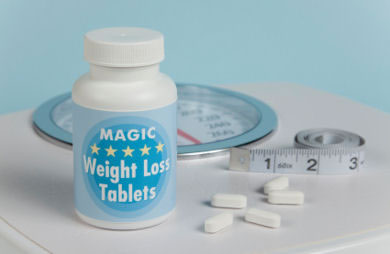
You may have heard that exercise is the key to a long a healthy life, but you might not be aware what a good amount of exercise can do for your body. How can we look and feel younger? While people continue to grow older, consistent aerobic exercise could decrease your biological age by 10 years or more. Adding exercises to your routine can go a long way toward helping you age gracefully. Exercising regularly at a high enough intensity can significantly grow your oxygen demands and eventually slow down aging. What's considered "regular training"? Regular training consists of short bursts of high intensity exercise followed by brief periods of active recovery. This type of training will allow you to exercise briefly at a high intensity in order to force the body to adapt in ways that slow aging. These helpful tips and hints will help you learn about more health benefits of exercise. Exercise Combats Diseases & Heart Conditions People who exercise on a daily basis will have a reduced chance of strokes and heart disease, because exercise strengthens the heart muscle, lowers blood pressure and influences the amount of cholesterol you have in your body. Cholesterol can be divided into two types: LDL and HDL. LDL cholesterol is considered the "bad" kind of cholesterol, which can be lowered by regular exercise. However, the "good" kind of cholesterol–HDL–can be increased by training and exercise. Regular exercise will also have a positive influence on your blood flow and the working capacity of the heart in general. Because of all of cardiovascular benefits of exercise, it therefore also reduces the risk of peripheral vascular disease. Worried about High Blood Pressure? Physical activity has clear and documented blood pressure benefits. One of the causes of high blood pressure is your body fat percentage. Regular exercise can reduce the amount of body fat that you have, subsequently reducing your blood pressure over time. Of course, in order to reduce body fat, you will need to eat healthy as well. Assists with Diabetes Prevention and Control People with a noninsulin-dependent type of diabetes can benefit from regular exercise. Physical activities can also prevent noninsulin-dependent diabetes and helps diabetes sufferers control their condition. Exercise Regulates Weight When you want to lose weight, you do not only have to eat healthy, you will need to exercise as well. A good amount of exercise reduces the amount of body fat and preserves your muscle mass. Strength training can also increase your muscle mass, subsequently increasing your ability to burn calories. In order to tackle obesity in its entirety, you will need to eat healthy as well. To eat healthy, you will need to cut out most sugars and saturated fats that can pack on the fat. It helps to use a tool that allows you track the calories you consume. Can Reduce Back Pain Regular exercise enables you to increase your muscle strength, endurance and posture. Subsequently, you can also strengthen your back muscles and reduce any back problems that have plagued you in the past. If you have suffered from a severe back injury or nerve-related back problems, it is advised to exercise with an experienced physiotherapist or a personal trainer. Help with Osteoporosis Weight training can reduce the symptoms of conditions such as osteoporosis. If you practice weight training on a regular basis, it could prevent certain forms of bone loss that have been associated with aging. People suffering from osteoporosis can therefore certainly benefit from regular exercise. Reduced Chance of Cancer One of the major benefits exercise can deliver is a reduced chance of cancer. Regular exercise can reduce the chance of colon cancer by 50 percent and breast cancer by 20 percent. Naturally, there are other conditions that could be prevented by regular exercise; this includes some of the conditions already mentioned such as coronary heart disease, diabetes and dementia. Exercise Can Boost Self-Esteem & Mood Regular exercise does not only have physical benefits, but also psychological benefits. Exercise improves your mood and also affects the way you feel about yourself. Studies have also shown that regular exercise has a positive impact on psychological conditions such as depression and anxiety disorders. The Importance of Health Insurance When you start to exercise intensively, it is important to have the right health insurance in case something goes wrong. According to 457 Visa, no matter how healthy or strong you are, there is always a chance of injury. Therefore, always check if your health insurance covers you in case of injury. The Ideal Amount of Exercise Some people who have not exercised a lot in the past have no idea how much they need to exercise per week in order to be healthy. Health professionals advise that everyone should achieve an activity level of at least 150 minutes each week. There are several ways to achieve this--you do not necessarily have to go to the gym every single day, you just have to make smarter choices. Instead of taking the car to work, why not ride your bike? Instead of taking the elevator, why not take the stairs? Recent studies have also shown that vigorous exercise could provide more benefits than exercise on a moderate level. Exercise considered vigorous will increase your heart rate and breathing. Exercise Conclusions Physical activity and exercise are good ways to feel healthier, increase health benefits and feel good about yourself. As a universal goal, aim for at least 30 minutes of physical activity every day. If you desire to lose weight or meet precise fitness goals, you may need to exercise more. Remember to check with your doctor before commencing a new exercise schedule, particularly if you haven't exercised for a long time, or have chronic health difficulties, such as diabetes, heart disease or arthritis, or you have any relevant health concerns. |
More From SparkPeople
|













.jpg)
